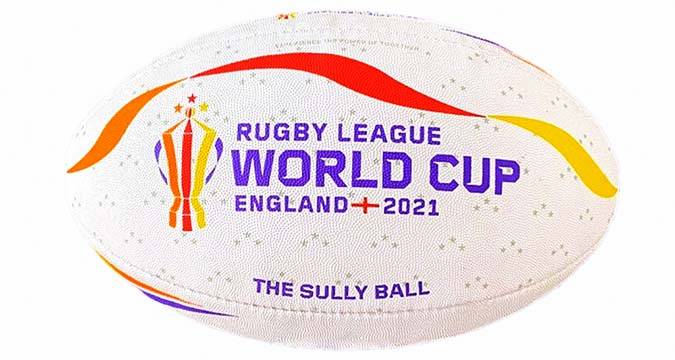 The official match ball at next year's Rugby League World Cup will be named in honour of Clive Sullivan MBE.
The tournament will be held 50 years on from the World Cup of 1972, when Sullivan captained Great Britain to their most recent triumph.
Sullivan was the first black sportsman to captain a British national team and scored a famous try i
The official match ball at next year's Rugby League World Cup will be named in honour of Clive Sullivan MBE.
The tournament will be held 50 years on from the World Cup of 1972, when Sullivan captained Great Britain to their most recent triumph.
Sullivan was the first black sportsman to captain a British national team and scored a famous try i Rugby League World Cup 2021 match ball named in honour of Clive Sullivan
 The official match ball at next year's Rugby League World Cup will be named in honour of Clive Sullivan MBE.
The tournament will be held 50 years on from the World Cup of 1972, when Sullivan captained Great Britain to their most recent triumph.
Sullivan was the first black sportsman to captain a British national team and scored a famous try i
The official match ball at next year's Rugby League World Cup will be named in honour of Clive Sullivan MBE.
The tournament will be held 50 years on from the World Cup of 1972, when Sullivan captained Great Britain to their most recent triumph.
Sullivan was the first black sportsman to captain a British national team and scored a famous try i 